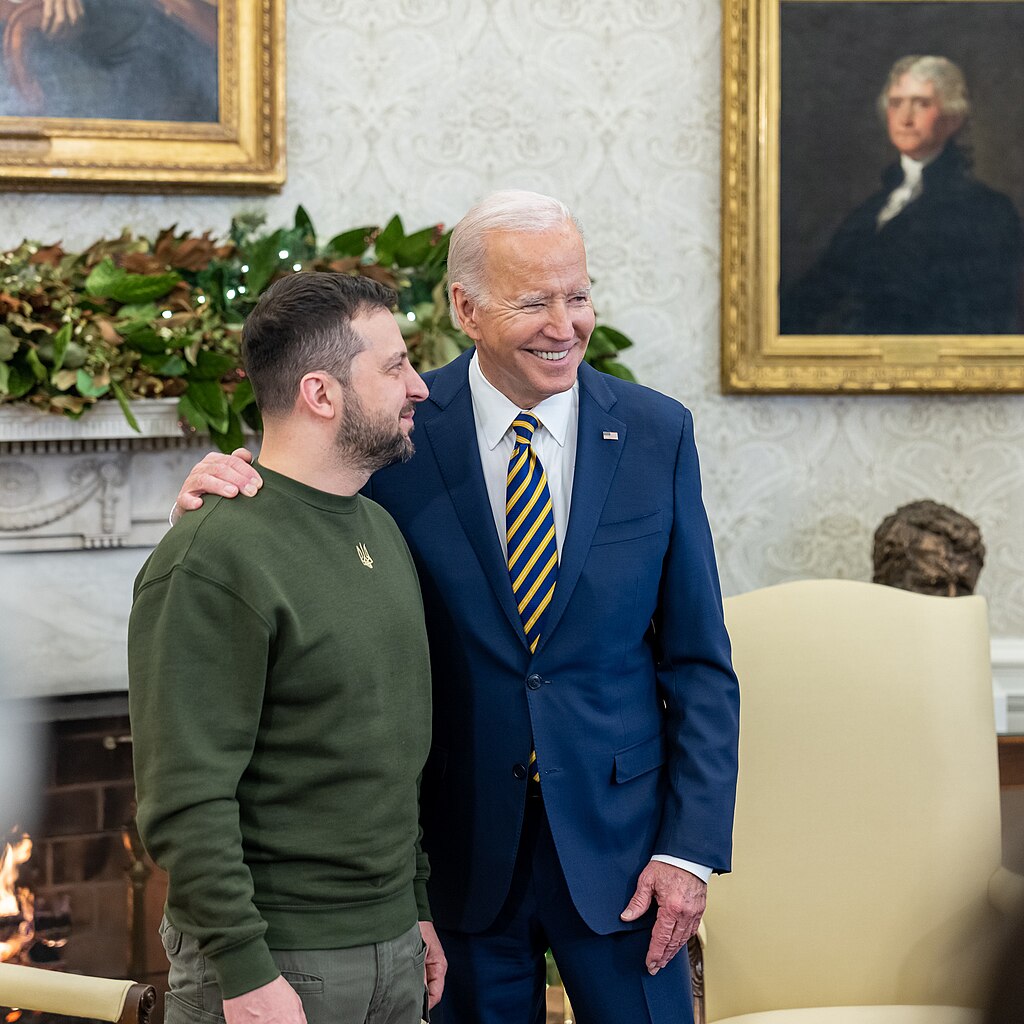
The war in Ukraine has become a devastating symbol of human suffering, displacement, and destruction. Yet, beneath the surface lies a story of political maneuvering and missed opportunities for peace. President Joe Biden’s approach to the conflict, coupled with Ukrainian President Volodymyr Zelensky’s survival strategies, has turned Ukraine into a pawn in a geopolitical game. The cost? Millions of lives disrupted and a nation left in ruins.
Biden’s Role: Sacrificing Ukraine for Power Plays
From the outset, Biden framed the conflict as a battle for democracy against authoritarianism. While this narrative resonated with Western audiences, it came at a steep price for Ukraine. Early in the war, there were reports of potential peace negotiations between Ukraine and Russia. These discussions included proposals for Ukraine’s neutrality and autonomy for regions with significant ethnic Russian populations. Such a deal could have de-escalated the conflict and spared countless lives.
Instead, Biden and other Western leaders, including Boris Johnson, reportedly discouraged Ukraine from pursuing these talks. Their focus on countering Russian aggression and maintaining NATO’s influence in Eastern Europe overshadowed the possibility of an early resolution. By prioritizing geopolitical strategy over peace, Biden’s administration effectively sacrificed Ukraine’s stability and sovereignty.

The consequences are staggering. Millions of Ukrainians have been displaced, thousands have lost their lives, and the country’s infrastructure has been obliterated. The ripple effects extend beyond Ukraine, straining global economies, disrupting supply chains, and heightening tensions between major powers. Biden’s rhetoric positioned him as a defender of democracy, but his actions left Ukraine to bear the brunt of this geopolitical chess game.
Zelensky’s Survival Tactics: From Rock Bottom to Global Icon
Before the war, Zelensky faced declining approval ratings and mounting criticism from his own people. His leadership was under fire, and his political survival seemed uncertain. The war provided an opportunity to reshape his image. By aligning himself with Western leaders and framing Ukraine as the frontline of democracy, Zelensky transformed into a global icon.
Zelensky’s ability to rally international support has been remarkable, but it raises questions about his motives. His invitation to Trump to visit Ukraine, for instance, appears more about optics than substance. A visit from Trump would undoubtedly boost Zelensky’s image, both domestically and internationally, while reinforcing his narrative of resilience against Russian aggression.
Yet, this strategy is not without flaws. High-profile visits risk being reduced to symbolic gestures rather than meaningful actions. Zelensky’s previous interactions with Trump, including a visit to the White House under the pretext of signing a peace deal, were seen by some as attempts to secure U.S. support against Putin. Trump’s refusal to fully engage in these efforts highlighted the complexities of wartime diplomacy and the challenges of navigating competing interests.
The Human Cost: Lives Reduced to Numbers
Amid the political maneuvering, the suffering of ordinary Ukrainians has become a tragic backdrop. Millions have been displaced, thousands have perished, and the country’s infrastructure lies in ruins. Refugees have flooded into neighboring countries, their lives uprooted by a conflict they had no part in creating. For these individuals, the war is not a geopolitical strategy or a narrative of democracy—it is a daily struggle for survival.
The portrayal of leaders like Biden and Zelensky as saviors often overlooks the human cost of their decisions. While they navigate the complexities of international relations, the people of Ukraine continue to endure unimaginable hardships. The war has turned vibrant lives into statistics, with the suffering of millions reduced to numbers in reports and headlines.
Trump’s Role: A Strategic Refusal
Trump’s refusal to fully engage in Zelensky’s appeals for support against Putin reflects a different approach to leadership. By prioritizing diplomacy over theatrics, Trump avoided being drawn into a conflict that could have escalated further. His decision to forgo a visit to Ukraine, despite Zelensky’s invitations, underscores the importance of strategic thinking in times of crisis.
Zelensky’s latest invitation to Trump appears to be another attempt to leverage his presence for political gain. A visit would undoubtedly boost Zelensky’s image, but it would do little to address the root causes of the conflict. Instead, Trump’s focus on pragmatic solutions and accountability offers a path toward resolution without the risks and distractions of symbolic gestures.
The Ripple Effect: Global Consequences of Geopolitical Games
The war in Ukraine is not just a regional tragedy—it has global implications. Rising energy costs, disrupted supply chains, and heightened tensions between major powers have affected millions worldwide. The decisions made by leaders like Biden and Zelensky have far-reaching consequences, shaping the geopolitical landscape and influencing international relations for years to come.
This ripple effect underscores the need for accountability. Leaders must be held responsible for decisions that prolong conflicts and exacerbate suffering. The International Criminal Court, often criticized for its selective actions, should rise to the occasion and address the broader implications of such conflicts. Ensuring justice and transparency is vital for shaping a future where human lives take precedence over political strategies.
Conclusion: Leadership and Accountability
The war in Ukraine is a stark reminder of the complexities of global politics and the devastating consequences of missed opportunities for peace. Biden’s approach, while framed as a defense of democracy, has left Ukraine to bear the brunt of geopolitical ambitions. Zelensky’s survival tactics, while effective in reshaping his image, have raised questions about his priorities and motives.
True leadership requires a commitment to humanity over strategy. It demands accountability for decisions that prolong conflicts and a focus on pragmatic solutions that prioritize peace and stability. For Ukraine, the path forward lies not in symbolic visits or political narratives but in genuine efforts to end the suffering and rebuild a nation torn apart by war.

